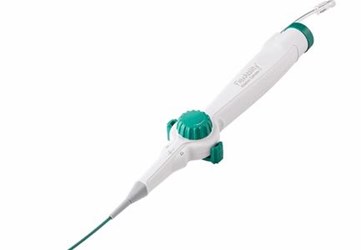FDA Approves Abbott's FlexAbility Ablation Catheter For Treating Atrial Flutter
By Jof Enriquez,
Follow me on Twitter @jofenriq

Abbott says it has picked up U.S. Food and Administration (FDA) approval for its new sensor-enabled FlexAbility ablation catheter. The catheter is designed to work with the company's EnSite Precision cardiac mapping system and MediGuide Technology to safely treat atrial flutter, a condition similar to atrial fibrillation, the most common heart rhythm disorder.
The original FlexAbility ablation catheter features an irrigated flexible tip, providing directed flow and tip temperature monitoring to minimize procedural risk, as well as advanced shaft and handle combination that's proven safe and effective in clinical trials, according to Abbott. The Sensor-Enabled designation means the updated version now has the ability to collect magnetic data – providing procedural versatility and high precision.
"We are continuing to innovate around the EnSite Precision cardiac mapping system to create an ablation portfolio that best supports physicians looking to tackle even the toughest cases," said Srijoy Mahapatra, M.D., medical director of Abbott's electrophysiology business, in a press release. "The introduction of the sensor enabled ablation catheter is delivering on that need. It offers the ability to engage the magnetic platform for enhanced precision, especially when physicians encounter a complex case."
Abbot wants to make EnSite Precision the new standard for treating patients experiencing arrhythmias arising from different loci in the heart. The system allows better three-dimensional images of errant electrical pathways in the heart to guide doctors during an ablation procedure, during which catheters are used to purposefully create scar or destroy heart tissue areas where these arrhythmias originate. The system was launched in the U.S. and first used commercially last month at the Intermountain Heart Institute at Intermountain Medical Center in Salt Lake City.
EnSite Precision is part of St. Jude Medical's electrophysiology devices portfolio. Abbott's acquisition of St. Jude last year catapulted Abbott to the number two player in the global market for this segment, behind Biosense Webster, and just ahead of Medtronic and Boston Scientific.
Abbott entered the fast-growing electrophysiology market in 2014 by acquiring Topera Inc., a developer of a unique rotor-identification system consisting of a diagnostic catheter and mapping software for atrial fibrillation. In the same year, it purchased another California-based electrophysiology company, Advanced Cardiac Therapeutics (ACT). Abbott in 2016 also bought private firm Kalila Medical, a developer of next-generation cardiac electrophysiology technologies.
The rising number of catheter-based procedures and the penetration rate of more advanced ablation devices are expected to drive growth in the U.S. market for electrophysiology and ablation devices through the remainder of the decade, according to iData Research.
